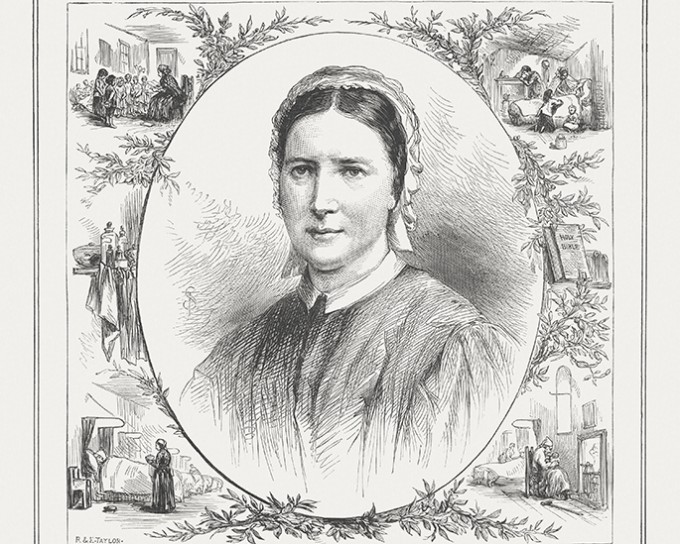Profiles In Nursing
Agnes Jones (1832-1868), English Workhouse Infirmary Reformer
In the age of Dickens, her efforts led to the reform of English public healthcare

Born wealthy, Agnes Jones dedicated her short life to caring for some of England’s most desperate citizens. Her tenacity, will and faith helped to transform English healthcare, earning her the deep personal regard of Florence Nightingale herself.
The Horrors of the Workhouse
If you’ve ever read the novels of Charles Dickens, you might recall his vivid depiction of English workhouses. Originally conceived as a form of public relief for the poor, workhouses eventually became little better than prisons where the destitute paid for their meager room and board — which they were rarely allowed to leave — with endless, menial manual labor. Children as young as 9 were put to work picking cotton or weaving. The elderly could be forced to work until the age of 80.
Workhouse hospitals were the grimmest of all. Intended to segregate the sick from healthier inmates who could still be made to work, the hospitals were only for the desperate. For many, to die in the street was a more appealing prospect than to die in a workhouse hospital. Nursing in these hospitals was usually assigned to able-bodied female inmates, who had no training and little enthusiasm for the unpleasant, dangerous work, consoling themselves with drink and petty theft. The wards were packed with hundreds of patients, sometimes crammed three to a bed, waiting to die.
Healing Ministry
Agnes Jones’s early life was a far cry from the workhouses. The child of a British Army officer and an Irishwoman, she spend much of her childhood in Mauritius and then a country house in Fahan, County Donegal, Ireland. She went to school in Stratford-upon-Avon (birthplace of William Shakespeare) and at 19 became a teacher in Dublin.


